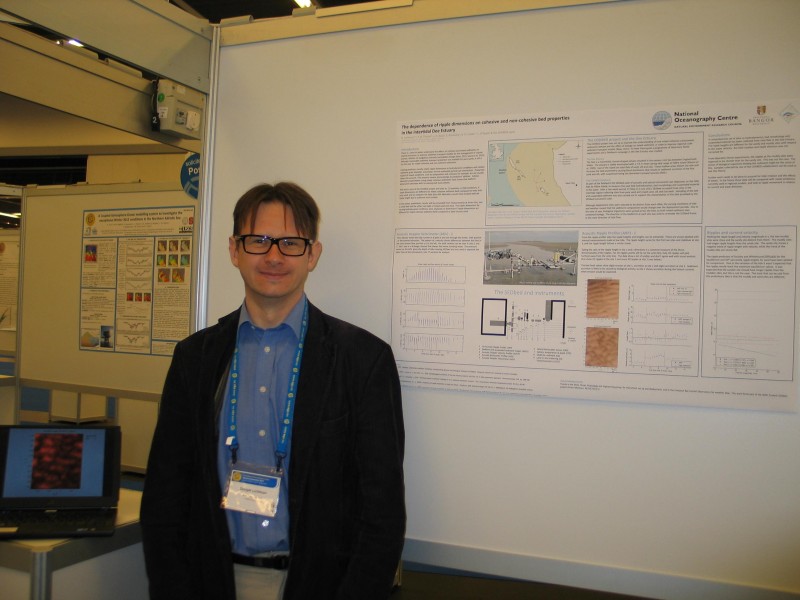European Geosciences Union General Assembly
Dougal Lichtman
NOC/Bangor University

2014 European Geosciences Union General Assembly
From 27 April to 2 May the 2014 European Geosciences Union General Assembly was held in Vienna. This year’s conference attracted 12,437 participants from 106 different countries, with 14,895 presentations in 568 sessions. Topics covered all aspects of the earth sciences and extended to include space, planetary and solar system science as well.
Presentations were divided into talks, posters and PICO sessions. The PICO sessions were a new concept to me and were meant to be combination of talk and poster. Each PICO presenter has two minutes to show slides to an audience, then later the slides were displayed on interactive screens so that smaller interested groups can talk with the authors. Also, the poster sessions allowed for more than just a static display, as the boards had tables next to them for the use of a laptop. This meant that I was able to display an animation of changing ripple bed morphology, to help catch people’s eye, and bring up presentations to help answer more in depth questions.
The main session relevant to me that I attended was the ‘Advances in Physical Estuarine Processes’ and my poster, about ripple dimensions of muddy and sandy beds on tidal flats, formed part of this session. However, I also managed to attend sessions on: general estuarine processes, ocean circulation, informatics, coastal and shelf oceanography, operational oceanography, remote sensing and geosciences education. The wide range of material gave me new ideas on how to approach the data analysis for my own project and meeting other scientists from different institutions will hopefully lead to future collaboration. I am very grateful to the Challenger Society for supporting my attendance of this conference.
Latest News
Royal Society Publishing Photography Competition 2025
Please see a message from the Royal Society below:
We are delighted to announce that the 2025 Competition is now open for entries until 15 August for a chance to win £1000! The competition celebrates the power of photography in conveying the wonder of science happening all around us and photographs can be submitted in the categories of: Astronomy, Behaviour, Earth Science and Climatology, Ecology and Environmental Science, and Microimaging.
The competition is free to enter and open to anyone studying or working in science at graduate level or above. Category winners will receive a one-year membership to the Royal Photographic Society and the overall winner will receive a grand prize of £1,000. Find out more: https://bit.ly/RSPphotocomp
October 2025 MEDIN Workshop: Marine Data Management, Governance and the MEDIN toolset
The Marine Environmental Data and Information Network (MEDIN) are pleased to announce that registration is now open for the next occurrence of our popular free online training workshop: ‘Marine Data Management, Governance and the MEDIN toolset’ on the 13th – 17th October 2025 on OceanTeacher Global Academy.
Marine Data Management, Governance and the MEDIN toolset
The Marine Environmental Data and Information Network (MEDIN) and OceanWise are delighted to invite you to attend our popular free online training workshop: ‘Marine Data Management, Governance and the MEDIN toolset’ on the 19th – 23rd of May 2025.
